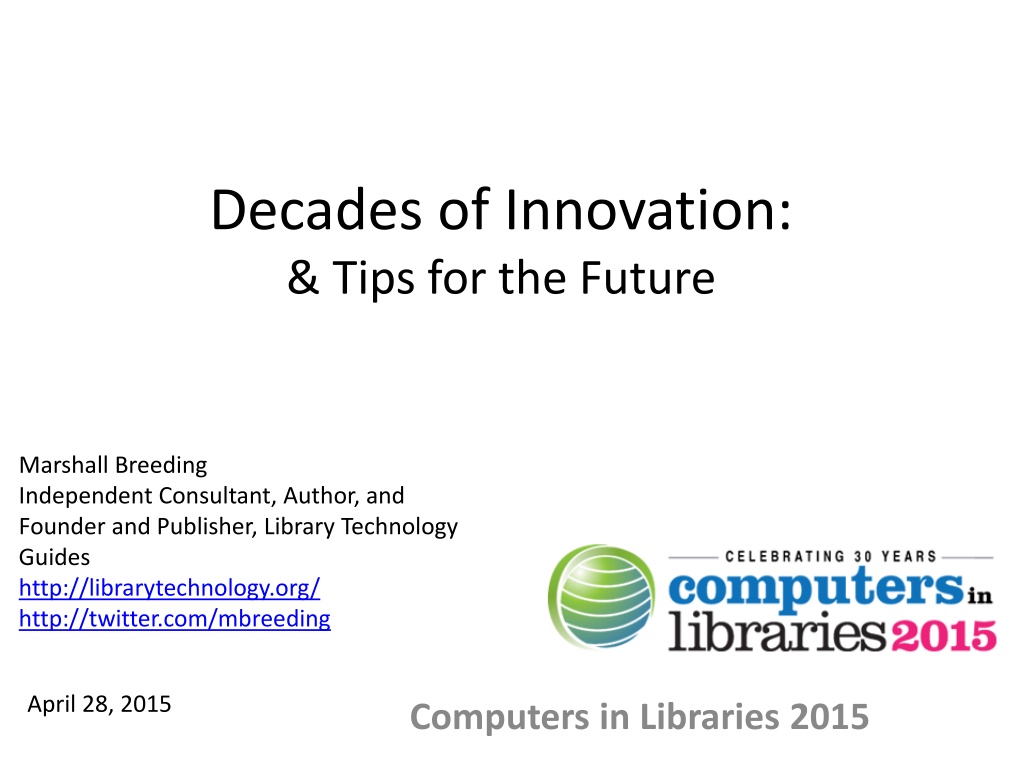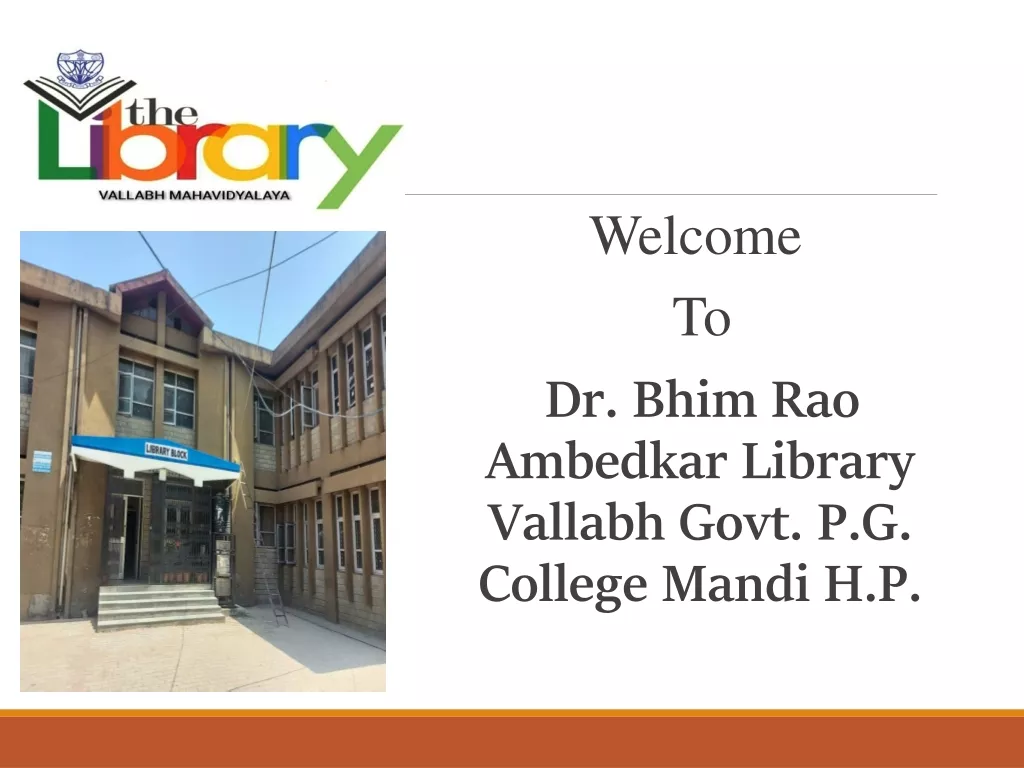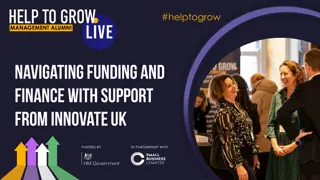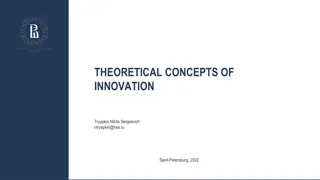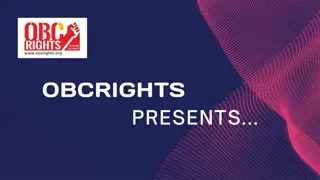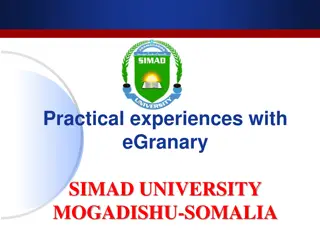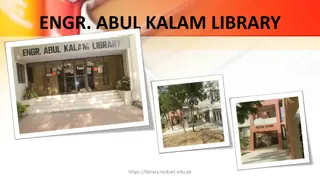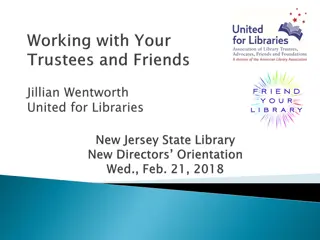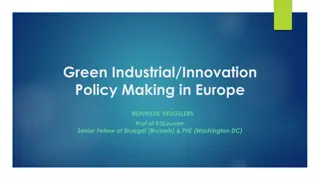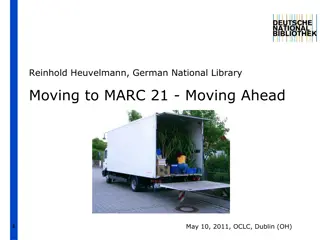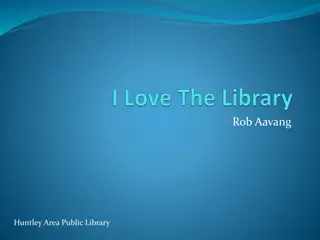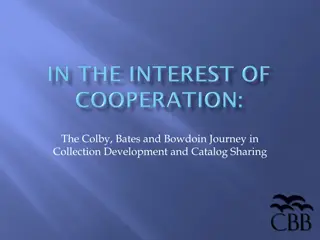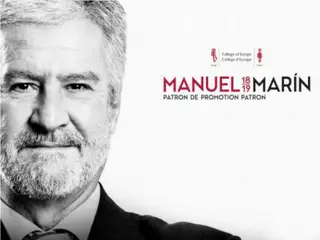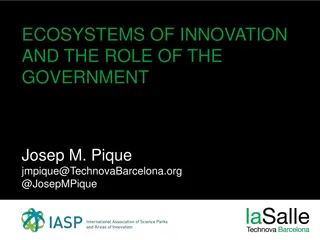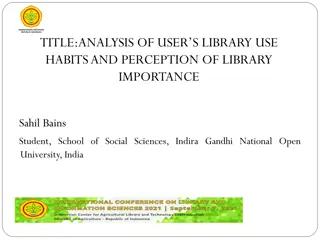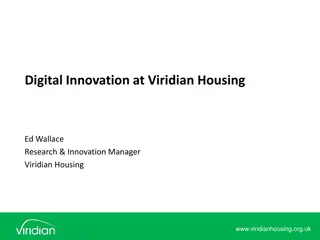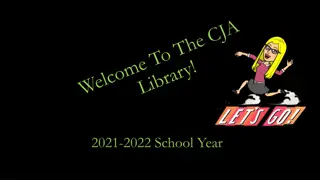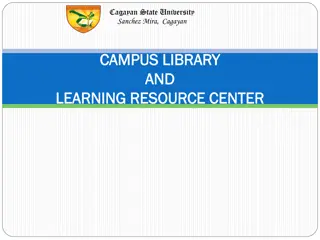Decades of Innovation: Tips for the Future in Library Technology
Explore the evolution of library technology over the past three decades through the lens of the Computers in Libraries Conference. Marshall Breeding, along with a panel of experts, reflects on past innovations, current trends, and future opportunities in library technology. Discover key insights, best practices, and emerging technologies to stay relevant and innovative in the ever-changing library landscape.
Download Presentation

Please find below an Image/Link to download the presentation.
The content on the website is provided AS IS for your information and personal use only. It may not be sold, licensed, or shared on other websites without obtaining consent from the author. Download presentation by click this link. If you encounter any issues during the download, it is possible that the publisher has removed the file from their server.
E N D
Presentation Transcript
Decades of Innovation: & Tips for the Future Marshall Breeding Independent Consultant, Author, and Founder and Publisher, Library Technology Guides http://librarytechnology.org/ http://twitter.com/mbreeding April 28, 2015 Computers in Libraries 2015
Host and Panelists Marshall Breeding: Independent Consultant Jason Griffey: Founder, Evenly Distributed Meg Backus: IT Manager, Anchorage Public Library Jan Holmquist: Global Librarian, Denmark Darlene Fichter: GovInfo Librarian, University of Saskatchewan
Agenda Marshall: Brief presentation Libraries have experienced incredible change since the first small Computers in Libraries Conference thirty years ago. The realm of library technology likewise has seen dramatic transformation. Breeding, whose career has paralleled CIL, highlights some of the interesting, amusing, and important touchstones marked by this important annual conference. He offers tips on how to stay relevant over time through continual innovation! (30 min) Audience participation: best and worst technologies implemented by libraries (15 minutes) Panel Discussion: Jason, Meg, Jan, Darlene Looking forward: Emerging trends, interesting technologies, and opportunities for innovation in libraries. First trend: 10 min each.
0oThree Decades of Technology A look back to the early years of the Computers in Libraries conference, the major tides of technology, and some personal observations
Early Years Small Computers in Libraries 1985: Strategic library systems ran on mainframes Small computers provided tools for innovation and productivity beyond the more formal and structured mainframe systems
Photo credit: http://www.vectronicsappleworld.com/archives/vintage/images/0001/image20.jpg Photo credit: http://en.wikipedia.org/wiki/IBM_Personal_Computer#/media/File:Ibm_pc_5150.jpg
IBM PC Apple iPhone 5 1981 2012 Year of manufacture $2,000 with monitor and two drives $199 for 16G model Cost Intel 8088 processor Apple A6 dual core Processor 4.77 MHz 1.3 GHz Performance 256 kilobytes 1G LPDDR2 DRAM Memory One or two floppy drives using 360 kilobyte double-density disks 16, 32 or 64G Flash memory Storage IBM BASIC / PC-DOS 1.0 iOS 6.1.3 Operating System Either an 11.5-inch monochrome 5151 CRT or a color model (with a CGA card) that had a 640-by-200 resolution and could display 16 colors 4-inch 1,136 by 640 LCD at a 16:9 aspect ratio that is capable of showing millions of colors Graphics Display Most had none, but a 14.4 kilobits/sec modem and eventually a 56k model could be added EDGE networks in the 850, 900, 1,800, 1,900 MHz band, most cellular networks, Bluetooth 2.1 and all Wi-Fi bands (802.11 a/b/g/n) Connectivity John Breeden I. 30-year showdown: IBM PC vs. Apple iPhone May 29, 2013 http://gcn.com/Articles/2013/05/30/Comparisons-IBM-PC-iPhone5.aspx
Communication Technologies Dial-up modems No High-speed local area networks Ethernet invented in 1973, but not used in libraries until the mid to late 1980s Internet pre-cursors: BITNET, ARPANET, NSFNET Massive multi-player game: MUD (Multi-User Dungon) 1984 ~1988 Networks converge into the Internet
Internet before the Web Telnet: Online catalogs with Text menus HyTelnet: Hyperlinked access to library catalogs Created by Peter Scott FTP used to transfer files E-mail becomes international
CD-ROM Content distribution before the internet Library databases distributed on physical media Initially intended for use on 1 computer CD-ROM networks enabled broader access
Hyptertext and Linking Gopher: initially created at the University of Minnesota in 1991: involved dedicated clients Campus Wide Information Systems CWIS magazine published by Meckler WAIS Brewster Kahle
The Web emerges 1989: Tim Berners-Lee invents the Web 1991: Web begins to see use outside CERN mostly used by academics
The Web explodes Mosaic client developed in 1993 by Marc Andreeson of NCSA Use expands into the general population
Semantic Web Virtual Reference Online Catalogs Electronic Journals OPACs CSS WAIS Discovery Use Statistics Coding Gopher LaserDisc Innovation Responsive Design
Nancy Melin Nelson Editor for Computers in Libraries Conference Organizer VP Meckler Corp
Eric Flower Eric Flower, University of Hawaii - West Oahu Started the Tuesday evening Dead Technology session Passed away July 12, 2013
Tom Hogan Photo by Don Hawkins
Audience Participation Winners: What was the technology that was the most successful, innovative, or transformative for your library? Losers: Name a technology that was overrated, over hyped, or otherwise unsuccessful.
Panel Discussion Jason Griffey: Founder, Evenly Distributed Meg Backus: IT Manager, Anchorage Public Library Jan Holmquist: Global Librarian, Denmark Darlene Fichter: GovInfo Librarian, University of Saskatchewan Looking forward: New or emerging technologies poised to strengthen libraries
